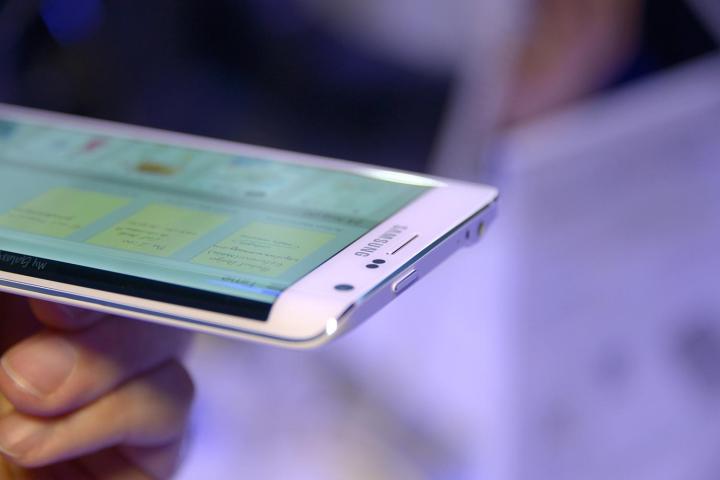
Reports show Samsung has been working on an iris scanner since at least 2014. But a new patent lends credence to the rumor that we could be seeing this technology sooner rather than later. According to the patent, the iris recognition system will rely on three individual lenses, a dedicated lighting device, and an image processing system.
The system would rely on two narrow-angle lenses for capturing the individual eyes of the user. These would be used alongside a wide-angle lens to capture the entire face of the user. Together, these images would be used to capture and verify the identity of the person attempting to unlock the device.

Besides the lenses, one of the key elements in the patent is a built-in infrared light, which will shine on the eye of the person attempting to unlock the phone. This would provide a more accurate image than using ambient light and wouldn’t blind the user as an LED light would.
For such a technology to be commercially successful, Samsung would need to balance security with convenience. Fingerprint scanners are extremely quick and although iris scanners would be more difficult to fool, the latency of such a system could prove to be a downfall. In addition, the individual components in an iris-scanning system will likely cost more than a fingerprint scanner, inevitably raising production costs.
Another trade-off that could be seen in this patent is the need for a rather large unit on the front side of the phone it’s being implemented into. As phone manufacturers continue to shrink the bezel on devices, this could reverse that trend.
We’ll see soon enough whether or not this will actually make its way into the Galaxy Note 7. What are your thoughts? Would you be willing to trade a little convenience and screen real estate for added security? Or is a fingerprint scanner good enough for you?
Editors' Recommendations
- Samsung Galaxy Watch 7: news, rumored price, release date, and more
- I’m glad the Samsung Galaxy Note died when it did
- Asus’ latest Android phone could be a big threat to the Galaxy S23 Ultra
- The one thing the iPhone 14, Galaxy S23, and Pixel 7 all get wrong
- I did a Galaxy S23 Ultra vs. Pixel 7 Pro camera test — and it’s not even close



